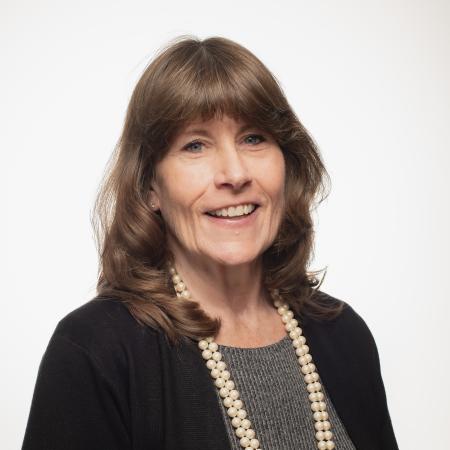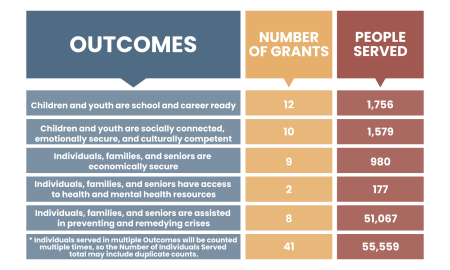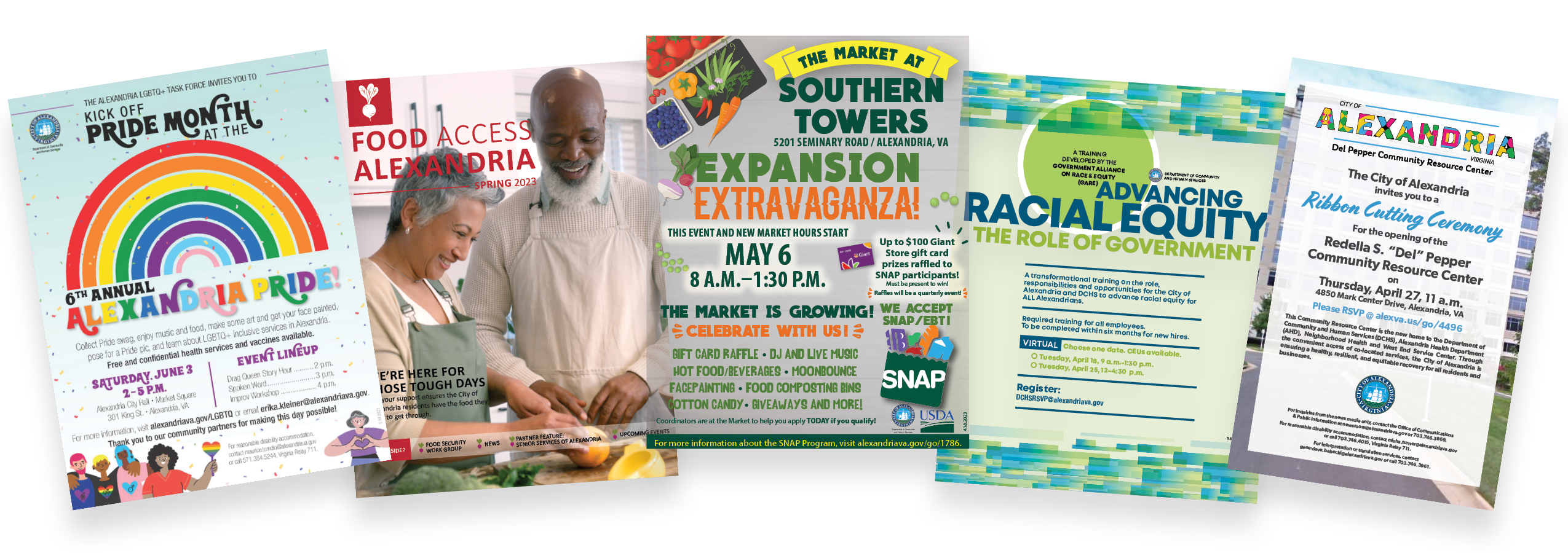
Office of the Director | FY23 Community Impact Report


A Message from Director Kate Garvey
The Department of Community and Human Services (DCHS) FY 2023 Annual Report is presented to the Alexandria community with both pride and gratitude. This report reflects the incredible work of the DCHS staff and partners and the commitment and investment of our leaders and community members. The report also tells the story of many residents who face significant challenges and barriers, yet still persevere. Their achievements and fortitude continue to inspire us all...
See the full message
The Department of Community and Human Services (DCHS) FY 2023 Annual Report is presented to the Alexandria community with both pride and gratitude. This report reflects the incredible work of the DCHS staff and partners and the commitment and investment of our leaders and community members. The report also tells the story of many residents who face significant challenges and barriers, yet still persevere. Their achievements and fortitude continue to inspire us all.
One of the most significant things that took place this year was the relocation of most of the Department into one location—the Redella S. Del Pepper Community Resource Center, located at 4850 Mark Center Drive. This had been a dream for our organization since it was created through a merger 10+ years ago.
Our journey to relocate the Department, which took five years, began with asking those who use our services what they would want in an ideal setting. A warm, welcoming space that reflects respect for those who enter; a place to have a meal to be with their children; access to all City resources; and of course, good transportation and parking—these were among the highest priorities. I am overjoyed that the Del Pepper Center offers all of these things and more.
In this setting, along with our critical partners, the Alexandria Health Department and Neighborhood Health, we have the opportunity to create a comprehensive approach to supporting residents as they work to fulfill their dreams and address their concerns. It is an exciting time and the possibilities are endless— possibilities that can only be achieved through the dedication and expertise of our 650+ employees. They make incredible things happen each day and we are truly grateful for this.
It is also critical to acknowledge the significant support that we receive from the Mayor and City Council, the City Manager’s Office, our Boards and Commissions, City and non-profit partners, the community, and our many volunteers. Each day we benefit from the contributions that are shared by all our amazing stakeholders and supporters. Alexandria is a remarkable place, where you do believe anything is possible. Thanks to all who keep making us believe!


Quality Assurance and Health Information Management
Quality Assurance (QA) and Health Information Management provided technical assistance as Behavioral Health programs completed a successful desk re-audit with Optum/United Health Care. Auditors selected outpatient records of youth and adults to assure medical necessity and completeness of documentation requirements. QA also offered leadership and technical assistance during State Licensing audits that focused on reviewing the totality of service provision for developmental disability and other vulnerable youth and adult populations.
The Alexandria Fund for Human Services
The Alexandria Fund for Human Services (AFHS) marked the last year of the COVID-19 pandemic-related AFHS extended grant cycle. In FY 2023, the final year of the grant cycle, 39 grant partners helped 55,559 residents continue to recover from the multiple impacts of the pandemic. Partners supported residents with the provision of such services as childcare, emergency financial assistance, food, employment training, literacy, healthcare and rent assistance. See the AFHS table below in a larger size.

Following guidance from the City Council-directed AFHS Reform Committee, the FY 2024-2026 grant cycle launched with an enhanced focus on partnering with community-based organizations. The Reform Committee considered AFHS funding areas, priorities, outcome data, structure for future grant cycles as well as mechanisms to encourage collaboration, innovation, and a focus on racial equity.

The Office of Organizational Development and Equity
The Office of Organizational Development and Equity (ODE) led the Racial Equity Core Team’s (RECT) work to identify and dismantle institutional and systemic racism in policies, programs and practices with the goal of reducing and eliminating disparities and inequities experienced by clients and employees. To this end, ODE expanded the “Advancing Racial Equity” training to all City of Alexandria Departments. The group also partnered with the City Race and Social Equity Office to develop and launch the Racial Equity Toolkit, a guide to support City programs in applying a racial equity lens to policies, procedures and other decision-making. The Catalyst, an employee newsletter that highlights department-wide employee efforts to implement racial equity principles and practices, released two editions, providing learning resources and inspiration to employees.

Friends of the Alexandria Mental Health Center
Friends of the Alexandria Mental Health Center, a non-profit group of volunteers that raises funds to provide financial assistance and hope to Alexandrians with behavioral health conditions, fulfilled 300 requests from case managers totaling $118,100. Without the generosity of the city residents who are Friends’ donors, many DCHS clients would fall through the cracks of the system and be without housing, dental and medical care, food, appropriate clothing, job training, and other support to aid them in their mental health recovery and increased independence.

Communications
The Communications Team managed the strategic delivery of behavioral health and human service information and promoted a range of internal and external initiatives, including the Department’s move to a new location. The team provided multi-lingual outreach through collaboration with community partners and faith-based groups and through such platforms as Facebook, X (formerly Twitter), the City website, the Spanish text line, the Connect newsletter, eNews, news releases, flyers and other print and digital assets. Communications responded to media requests to generate stories, administered a range of surveys to obtain input from the community on DCHS plans and services, and facilitated timely responses to Freedom of Information Act (FOIA) requests.
